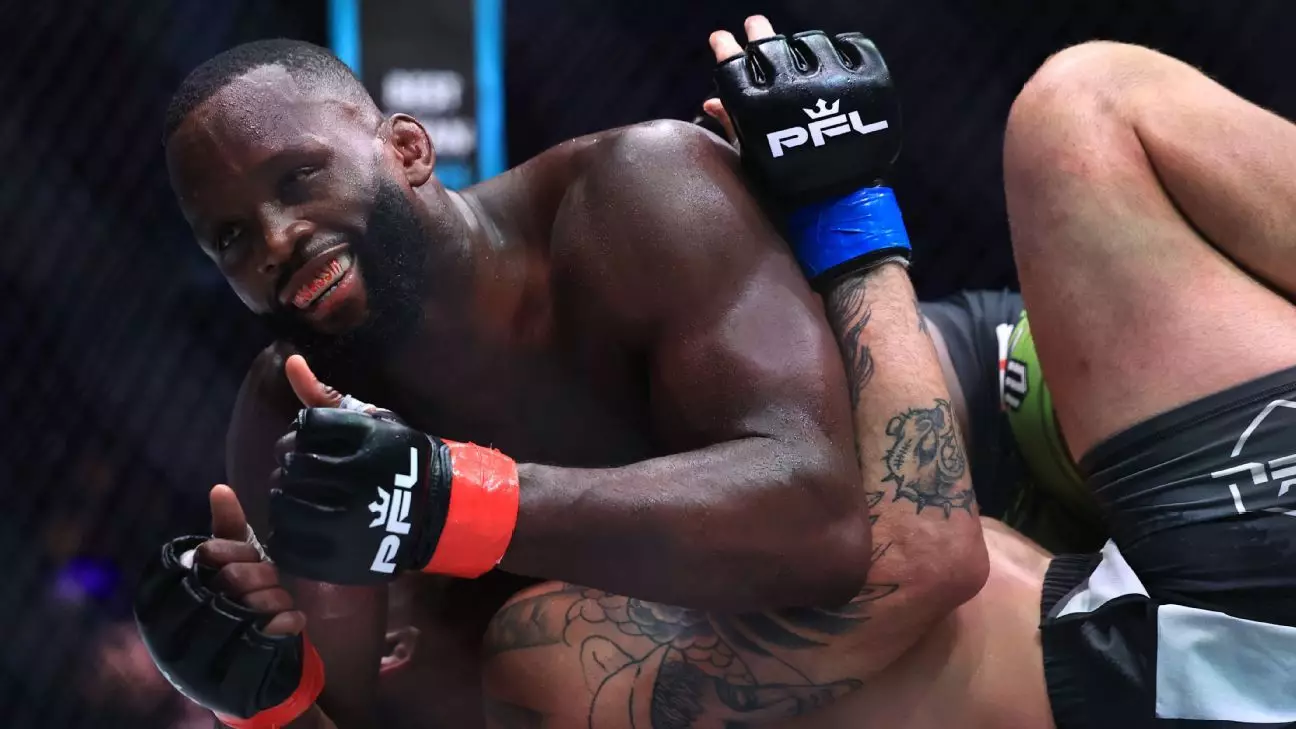The 2025 Professional Fighters League (PFL) season concludes with an electrifying crescendo, showcasing some of the most compelling matchups in recent MMA history. This epic finale is not just about crowning champions; it symbolizes a transformative moment where seasoned fighters meet rising stars, techniques clash, and new benchmarks are set. The event, held at the illustrious Seminole Hard Rock Hotel & Casino in Hollywood, Florida, offers a perfect showcase for the sport’s evolving landscape. For enthusiasts, this isn’t merely a tournament; it’s an insightful glimpse into MMA’s future trajectory.
What’s striking about this season’s final chapter is the emphasis on storytelling through competition. Fighters aren’t just contending for belts—they are defining their legacies, shaping the sport’s narrative with every strike, submission, and strategical move. As the fighters prepare to lock horns, a deeper examination reveals that these bouts hold lessons that extend beyond their immediate outcomes. They are experimental battlegrounds that reflect MMA’s ongoing transformation—melding traditional grappling, striking, and innovative game plans into a complex tapestry of athletic evolution.
The Significance of Experience Against Inexperience
One of the defining features of this year’s finals is the juxtaposition of fighters with extensive backgrounds versus those still finding their footing at this high level. Take Fabian Edwards, for instance, a seasoned veteran with multiple title challenges in Bellator. His experience in high-pressure scenarios provides invaluable insight, yet it also underscores an important question: does past experience guarantee future success?
In contrast, Dalton Rosta appears as an unseasoned fighter by comparison, but his recent dominance suggests that raw talent, coupled with relentless aggression, can level the playing field. Rosta’s undefeated record—minus a single decision loss—demonstrates that resilience and adaptability can challenge even the most experienced competitors. His mental toughness, especially after exacting revenge in his semifinal, hints at an emerging philosophy: in MMA, adaptability often outweighs mere familiarity with the spotlight.
This dynamic also reflects a broader trend in modern MMA—where youth often confronts age, and unpolished talent challenges seasoned expertise. Rosta’s journey epitomizes the shifting paradigm: the sport values relentless pursuit over traditional experience, rewarding fighters who display grit and innovative thinking. It furthermore raises the question: should fighters rely solely on their experience, or is raw determination the key to future success?
Romanov and Popov: The Clash of Ground and Power
The heavyweight and light heavyweight finals epitomize contrasting styles that could reshape how MMA fighters approach their craft. Alexandr Romanov, with his impressive record of finishes—particularly submissions—represents the archetype of gritty, relentless grapplers. His 16 finishes in 40 wins speak to a combat style grounded in suffocating pressure and expert ground control. Romanov’s focus on grappling signifies an enduring trend—fighters who can neutralize striking threats by imposing their will on the mat.
Meanwhile, Oleg Popov exemplifies explosive power, with a striking-oriented style accentuated by knockout prowess. His recent bouts have gone the distance, hinting that endurance and strategic pacing could be pivotal. Popov’s respect for Fedor Emelianenko underscores the importance of mental discipline and heritage in MMA—traditions that fuel modern fighters’ resolve.
The anticipated clash will likely revolve around Romanov’s desire to take Popov into deep waters, testing whether ground dominance can outmuscle Popov’s explosive strike-based approach. Conversely, Popov’s challenge is to keep the fight standing, leveraging his knockout power. The key insight here is that fighters with diverse skill sets are evolving MMA beyond traditional boundaries, embracing hybrid techniques that make the sport more unpredictable and exciting.
The Strategic Implications of Experience and Preparation
An intriguing element in these finals is the role of preparation—especially for fighters like Antonio Carlos Jr. and Sullivan Cauley. Carlos, a two-time jiu-jitsu world champion, brings an elite grappling background, emphasizing the importance of experience but also underscoring that mastery in one discipline must be complemented by tactical adaptability. His opponent Cauley, with a relatively limited MMA record but exceptional striking credentials, represents the modern striker’s pursuit to dominate through stand-up prowess.
Cauley’s confusion between choosing to strike and wrestle reveals a critical strategic dilemma. The challenge remains: can a fighter with fewer MMA bouts maintain composure under pressure, sticking to their game plan without succumbing to hubris or emotional overreach? This scenario is emblematic of ongoing debates within MMA—how to balance aggression, discipline, and adaptability.
The fighters’ respective backgrounds demonstrate that MMA is no longer about masterful specialization alone but about integrating various domains seamlessly. For some, experience in grappling translates into confident clinches and takedowns; for others, striking mastery offers the opportunity to finish fights swiftly. Success hinges on mastering this balance—culminating in a strategic mindset that adapts to each opponent’s strengths.
The Future of MMA: More Than Just a Fight
As these finals unfold, the sport is witnessing a broader cultural and strategic evolution.

